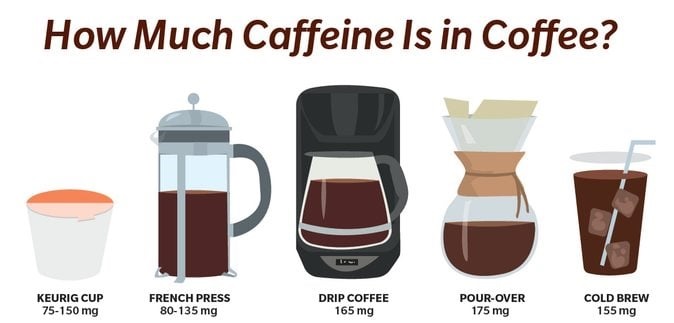Does Tea Have More Caffeine Than Coffee?
Introduction
Tea and coffee are two of the most popular beverages worldwide, enjoyed by millions of people each day. One question that often arises is whether tea or coffee contains more caffeine. Caffeine, a natural stimulant, is known for its ability to provide an energy boost and increase alertness. In this article, we will delve into the caffeine content of tea and coffee, explore the factors that influence their caffeine levels, discuss their potential health benefits, and finally, determine which one contains more caffeine.
Understanding Caffeine
Caffeine is a naturally occurring compound found in various plants, including tea leaves and coffee beans. It belongs to a class of substances called methylxanthines and acts as a central nervous system stimulant. When consumed, caffeine blocks adenosine receptors in the brain, leading to increased alertness and reduced feelings of fatigue.

It is important to note that while caffeine can provide temporary benefits, moderation is key. Consuming excessive amounts of caffeine may lead to side effects such as insomnia, restlessness, increased heart rate, and anxiety. It is essential to be aware of your own caffeine tolerance and limit intake accordingly.
Caffeine Content in Tea
Tea, derived from the leaves of the Camellia sinensis plant, comes in various forms, including black, green, white, and oolong tea. The caffeine content in tea can vary significantly depending on several factors such as the type of tea, the specific tea leaves used, and the brewing method.
On average, a cup of brewed black tea contains around 40-70 milligrams (mg) of caffeine. Green tea, known for its health-promoting properties, generally contains slightly less caffeine, ranging from 20-45 mg per cup. White tea, made from young tea leaves and buds, usually has a lower caffeine content compared to black or green tea. Oolong tea falls somewhere in between, with caffeine levels varying based on the specific variety and preparation.
Factors Affecting Caffeine Levels
Several factors influence the caffeine content in tea. The processing method plays a role, as black tea is typically more oxidized and contains higher caffeine levels compared to green or white tea. The brewing time and temperature also affect caffeine extraction. Steeping tea for a shorter duration or using cooler water can result in a milder cup with slightly less caffeine.
Furthermore, the specific tea leaves used can impact caffeine levels. Younger leaves, such as those found in white tea, tend to have lower caffeine content compared to mature leaves used in black or oolong tea. However, it is important to note that these variations are relatively small, and the overall caffeine content in tea remains moderate compared to some other caffeinated beverages.
Caffeine Content in Coffee
Coffee, made from roasted coffee beans, is well-known for its rich flavor and invigorating effects. The caffeine content in coffee generally exceeds that of tea. The type of coffee and its brewing method significantly impact the caffeine levels.

A standard cup (8 ounces) of brewed coffee contains approximately 95-165 mg of caffeine. However, these numbers can vary depending on factors such as the type of coffee beans used (Arabica or Robusta), the roast level, and the brewing technique. Robusta coffee beans tend to have higher caffeine content compared to Arabica beans, which are commonly used for specialty coffees.
Factors Affecting Caffeine Levels
The caffeine content in coffee can be influenced by various factors. Darker roasts often have slightly less caffeine compared to lighter roasts, as the roasting process can decrease caffeine levels. Brewing methods also play a role. Espresso generally has higher caffeine concentration due to its concentrated nature, while drip coffee may have a slightly lower caffeine content.
It is worth noting that instant coffee can have a different caffeine profile. Depending on the brand and preparation, instant coffee may contain slightly less caffeine than freshly brewed coffee. However, the difference is generally not significant enough to drastically alter the overall caffeine experience.
Which Has More Caffeine: Tea or Coffee?
When comparing the average caffeine content, coffee generally contains more caffeine than tea. A cup of brewed coffee typically has around 95-165 mg of caffeine, while a cup of black tea contains approximately 40-70 mg. However, it is important to consider serving sizes and personal preferences.
While coffee may have higher caffeine levels, tea offers a more gentle and prolonged energy boost due to the presence of other compounds such as L-theanine. L-theanine has a calming effect and can counterbalance the potential jittery effects of caffeine, resulting in a more balanced experience.
Caffeine Sensitivity
Individuals vary in their sensitivity to caffeine. Some people may be more sensitive to its effects, experiencing heightened alertness or even discomfort with smaller amounts. Others may have a higher tolerance and require larger doses to experience similar effects. It is essential to listen to your body and adjust your caffeine intake accordingly.
Moderation and Balance
Like with any substance, moderation is key when it comes to caffeine consumption. While both tea and coffee offer various health benefits, excessive caffeine intake can have negative effects on health and well-being. It is advisable to maintain a balanced approach and be mindful of overall caffeine consumption from all sources, including beverages, food, and medications.
Alternative Options
For those seeking lower caffeine options, there are alternatives available. Herbal teas, such as chamomile, peppermint, or rooibos, are naturally caffeine-free and can be enjoyed at any time of the day. Decaffeinated coffee is another option for those who enjoy the taste of coffee but want to limit their caffeine intake. These alternatives still offer flavorful experiences without the stimulating effects of caffeine.
Conclusion
In conclusion, while both tea and coffee contain caffeine, coffee generally has a higher caffeine content compared to tea. However, personal preferences, taste, and the desired effects should also be considered when choosing between the two. It is crucial to be mindful of your own caffeine tolerance, practice moderation, and enjoy these beverages as part of a balanced lifestyle.

FAQs
- Q: Does all tea contain caffeine?
- A: Not all tea varieties contain caffeine. Herbal teas, such as chamomile or peppermint, are naturally caffeine-free.
- Q: Is it safe to consume large amounts of caffeine?
- A: Consuming excessive amounts of caffeine can have negative effects on health, such as insomnia, restlessness, and increased heart rate. Moderation is key.
- Q: Can decaf coffee still contain some caffeine?
- A: Decaffeinated coffee still contains a small amount of caffeine, although significantly less compared to regular coffee.
- Q: Which has more health benefits: tea or coffee?
- A: Both tea and coffee offer potential health benefits, but the specific benefits may vary. It depends on individual preferences and considerations.
- Q: Can caffeine affect sleep patterns?
- A: Yes, caffeine can interfere with sleep if consumed close to bedtime. It is advisable to limit caffeine intake in the evening.




